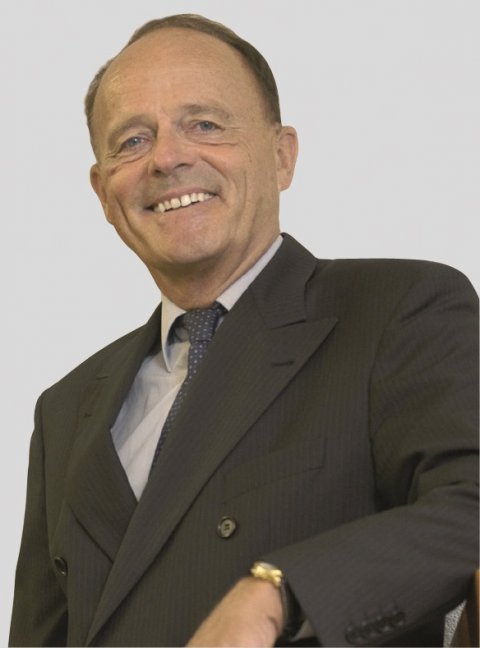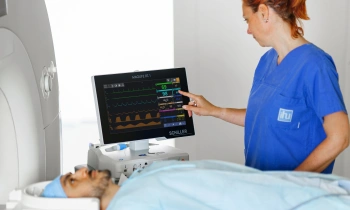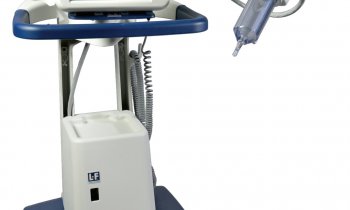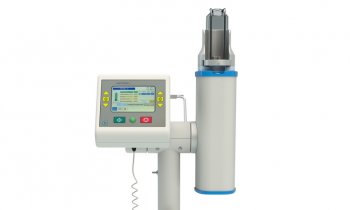Article • Company Profile
In the spotlight: Schiller AG
Alfred E Schiller, founder and managing director of Schiller AG, based in Baar, Switzerland, describes the rise of his company and its place in today’s highly competitive intensive care market.

Alfred Schiller founded Schiller AG in 1971 and three years later introduced his first product – a pocket-sized electrocardioscope, which has been built on successively over the years. The electrocardiography product range extended, and in 1984 the firm was the first in the world to develop a six-channel EEG with automatic interpretation and measuring. ‘This system promoted us into the top league,’ Alfred Schiller reflected, during our interview. New cardiopulmonary diagnostics products, lung function measuring systems and non-invasive blood-pressure measuring equipment, as well as Doppler-ultrasound scanners followed, and later came patient monitoring and defibrillation (in 2000, Schiller acquired Brucker Medical, a French firm specializing in external defibrillation and patient monitoring in extremely high magnetic fields).
Patient monitoring is covered by some of the larger manufacturers. We asked whether the firm therefore focused on in a particular area within that sector. ‘Our specialty is extremely high miniaturization, which is particularly important when patient monitoring equipment needs to be mobile, for example in accident and emergency medicine. Unlike systems supplied by our competitors, our mobile intensive-monitoring-system Argus Pro LifeCare has an inbuilt defibrillator. The advantage? You cannot always get an ambulance close enough to an injured person; sometimes you must walk the last few hundred metres – then it’s obviously an advantage to have less to carry around.
Recommended article

Sponsored • Resuscitation
EASY PULSE® – latest generation of automatic CPR devices
The EASY PULSE® is an unbelievably small and light mechanical chest compression device. Performing manual chest compressions well for an extended period of time is almost impossible. Not only is it physically demanding, but other actions, such as vital signs monitoring, are also required simultaneously. SCHILLER’s EASY PULSE® is the solution for more efficient resuscitation: this portable,…
Does this system sell well internationally?
‘We have 21 sales and production enterprises worldwide, spread over all continents, from which we serve the different markets. The procedures are regionally different. Countries such as Germany have a good, specialised trade structure, other countries don’t have enough specialist distributors, so we have to penetrate the market with our own distributor – all in all we employ about 600 people. We are the only Europeans who ever managed to penetrate the US market, where we are number two among the established companies. We did it by adapting to the particular American requirements and not even trying to export our European philosophies to the US. That also goes for Asia, where we are now also active. You just have to adapt to local conditions. Us Swiss are quite used to this, because we have always depended on exports. No one can simply live with only a national market, in a country of just 7.5 million inhabitants. We must export. This has worked to our advantage; it has given us an international outlook in an increasingly global market. It also shows in our internal organisation: our decision-making processes are extremely short. Being the most senior member of the company, I am always easy to get hold by everyone. We make decisions swiftly. Moreover, our company is 100% independent - the shares are owned by our family.’
Today Schiller AG has three areas of expertise: Cardiopulmonary diagnostics, patient monitoring and external defibrillation. ‘Our strength lies in the ability to combine all these applications with IT solutions and hospital information systems,’ Alfred Schiller explained. ‘In the future, hospitals will become similar to what we have been used to in offices for the last 20 years. Currently, medicine has fallen behind a little. We have only ever looked at diagnostic and operating methods, neglecting the organisational side and the whole area of data management.’
Isn’t one of the problems the fact that information technology has been produced for the different areas and medical fields, but not for the entire organisation?
All processes in cardiology are electronically registered and electronic patient files, including CT, MRI and ultrasound images, are accessible at all times
Alfred Schiller
‘This will come!’ he responded, ‘and it’s a big opportunity for our company as we will not merely offer equipment but entire system solutions. We have a few things happening in this area. We have been working with an IT company and the internal IT department at the University Clinic, Basel – one of Europe’s leading cardiology clinics – and have set up a wireless network that connects all medical technology areas in the hospital. All processes in cardiology are electronically registered and electronic patient files, including CT, MRI and ultrasound images, are accessible at all times. When doctors meet they can quickly discuss every single case by calling up Power Point electronically, without having to look for EEGs or ultrasound scans. In addition, all patients are given a CD upon discharge, which contains details of all their examinations. The local GPs are also wired up to this centre. This all makes the work far more efficient. For example, an anaesthetist can go to a terminal and access all relevant information electronically, prior to an operation, without having to gather bits of information from different places. The doctors in Basel are very happy with the system – and this network will grow. These days, when a GP refers a patient to hospital he can send the patient’s file to the hospital electronically. Then he can log on and keep up to date with what is happening to his patient while in hospital, and when the patient is discharged he receives all the information, without anything being sent by post.
‘The three areas of our involvement that I mentioned are covered by IT solutions that are now required for the daily use of this equipment and these diagnostic processes. The IT solution has to be integrated with the equipment. We also produce hardware. The interfaces are defined and now also standardised. All equipment manufacturers must be able to do this. We are a member of the IHE (Integrating Healthcare Enterprises) and we are at the stage where we can transfer our data onto existing systems via conversion programmes.’
Providing IT solutions is a very support-intensive business. How can there be profit in this?
‘By combining that with the sale of hardware.’
But this means the equipment will be more expensive – surely no one accepts that?
The healthcare sector in general is a crazy market and you must be very flexible to survive
Alfred Schiller
‘It’s accepted as long as the equipment can be integrated. If you buy cheap equipment manufactured in the Far East, for instance, of course this isn’t possible. This is the art of selling. You have to make the doctor realise that, although he might save € 1,000 by buying a cheaper product elsewhere, he will have no support and advice. We supply complete, ready solutions – and support. Of course this costs money! It is mostly done via service contracts. One of our most important, strategic objectives is to integrate in this world of IT and to be compatible. As we are active globally we have to be able to adapt to the most varied solutions. However, we are actually more advanced than they are in the USA. In the average US general practitioner’s surgery, most things are still done manually. Germany, France, Switzerland and particularly Italy are far more advanced. In Italy, we work closely with a company called Esaote. Eleven years ago we convinced them to have their EEG equipment manufactured by us. Now, with Esaote, we are by far number one in the Italian market. Their IT solutions are brilliant and our systems are integrated with those solutions.’
Today, he added, the firm’s presence in France is ‘extremely strong’, which he attributes to Schiller having a production plant there. In addition, the firm will soon open its new sales offices building in Paris. Schiller also works partly with Esaote in England, where the health service is in a dynamic state of change. In addition, the firm uses two distributors there. ‘We analyse each country individually, then adapt to what we have found, so our strategies are different in different European countries,’ Alfred Schiller confirmed, reflecting, ‘The healthcare sector in general is a crazy market and you must be very flexible to survive.’
01.03.2006
- angiography (117)
- cardiology (777)
- markets (545)
- medical technology (1553)
- monitoring (376)
- stroke (224)
- telemedicine (274)
- ventilation (112)











